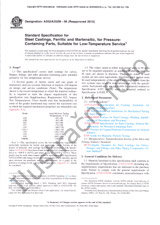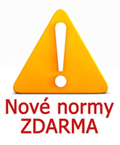Potřebujeme váš souhlas k využití jednotlivých dat, aby se vám mimo jiné mohly ukazovat informace týkající se vašich zájmů. Souhlas udělíte kliknutím na tlačítko „OK“.
ASTM D4120-07(2018)
Standard Test Method for Fiber Cohesion in Roving, Sliver, and Top in Dynamic Tests
Přeložit název
NORMA vydána dne 1.7.2018
Informace o normě:
Označení normy: ASTM D4120-07(2018)
Poznámka: NEPLATNÁ
Datum vydání normy: 1.7.2018
Kód zboží: NS-856425
Počet stran: 3
Přibližná hmotnost: 9 g (0.02 liber)
Země: Americká technická norma
Kategorie: Technické normy ASTM
Kategorie - podobné normy:
Anotace textu normy ASTM D4120-07(2018) :
Keywords:
fiber cohesion, textile strand ,, ICS Number Code 59.080.20 (Yarns)
Doplňující informace
| Significance and Use | ||||||||||||||||||||
|
5.1 This test method for the determination of cohesion in sliver, roving, or top in dynamic tests may be used for the acceptance testing of commercial shipments but caution is advised since information on between-laboratory precision is lacking. Comparative tests as directed in 5.1.1 may be advisable. 5.1.1 If there are differences or practical significance between reported test results for two laboratories (or more), comparative test should be performed to determine if there is a statistical bias between them, using competent statistical assistance. As a minimum, test samples that are as homogeneous as possible, drawn from the material from which the disparate test results were obtained, and randomly assigned in equal numbers to each laboratory for testing. The test results from the two laboratories should be compare using a statistical test for unpaired data, at a probability level chosen prior to the testing series. If a bias is found either its cause must be found and corrected, or future test results for that material must be adjusted in consideration of the known bias. 5.2 The cohesive forces overcome in continuous drafting of slivers, rovings, or tops are affected by surface lubricants and such fiber properties as linear density, surface configuration, fiber length, fiber crimp, and fiber-frictional characteristics. 5.2.1 The concept of drafting is one of the most important principles in the production of yarn from fibrous raw stock. 5.2.2 The values of force to maintain drafting determined by this method are induced by mechanical means similar to those used in textile processing. 5.2.3 The attenuation of textile fiber strands while in motion closely approximates actual textile processing conditions, and the relative values of force may be used to predict processing behaviors. 5.3 Fiber cohesion is affected by the alignment of fiber in the textile strand and strand compaction in addition to the factors listed in 5.2. Although fibers are more nearly aligned in draw sliver than in card sliver, the draw sliver is more compact. Thus, for a given production run, the drafting forces are higher for draw sliver than for card sliver. 5.4 In addition to the aforementioned effects on drafting forces, the direction of specimen movement through drafting rollers may give different drafting force. Fibers in slivers may have hooks of varying severity at one or both ends. Passage through drafting rollers results in higher drafting forces when the predominance of fiber hooks are oriented in the trailing mode of the strand. |
||||||||||||||||||||
| 1. Scope | ||||||||||||||||||||
|
1.1 This test method describes the measurement of fiber cohesion as the dynamic cohesive force required to maintain drafting in rovings, slivers or tops when they are subjected to stress induced by passing between pairs of drafting rolls of different surface speeds. The cohesive force is converted to cohesive tenacity based on the linear density of the material. Note 1: For static tests refer to Test Method D2612.
1.2 This standard does not purport to address all of the safety concerns, if any, associated with its use. It is the responsibility of the user of this standard to establish appropriate safety, health, and environmental practices and determine the applicability of regulatory limitations prior to use. 1.3 This international standard was developed in accordance with internationally recognized principles on standardization established in the Decision on Principles for the Development of International Standards, Guides and Recommendations issued by the World Trade Organization Technical Barriers to Trade (TBT) Committee. |
||||||||||||||||||||
| 2. Referenced Documents | ||||||||||||||||||||
|
Odebírejte informace o nově vydaných normách ZDARMA:
Chcete pravidelně odebírat informace o nově vycházejících normách z celého světa a to zcela zdarma?
Přihlašte se k odběru. Vše je velice jednoduché a absolutně ZDARMA.
Na výběr máte vydavatele z celého světa.




 Cookies
Cookies
